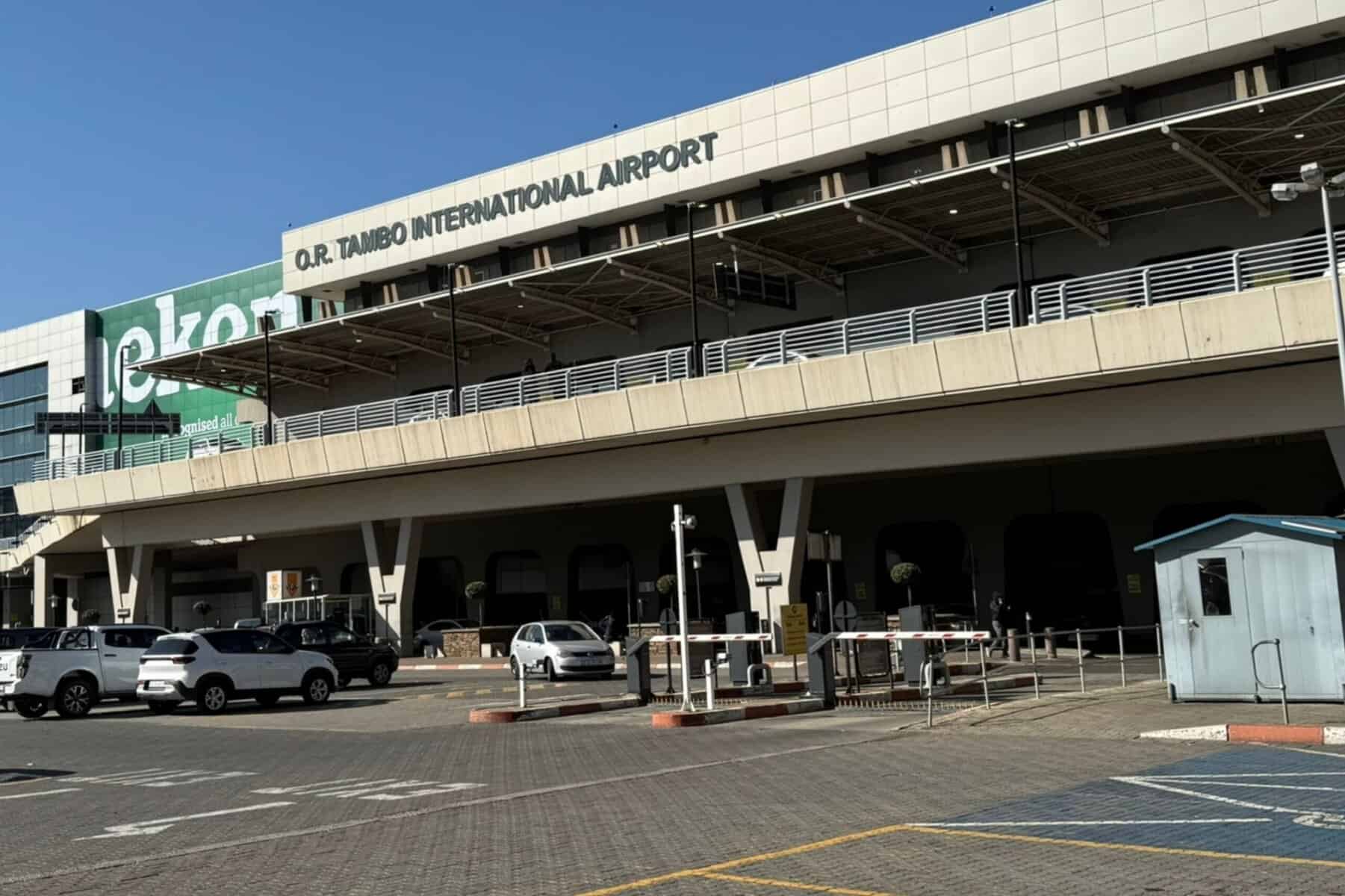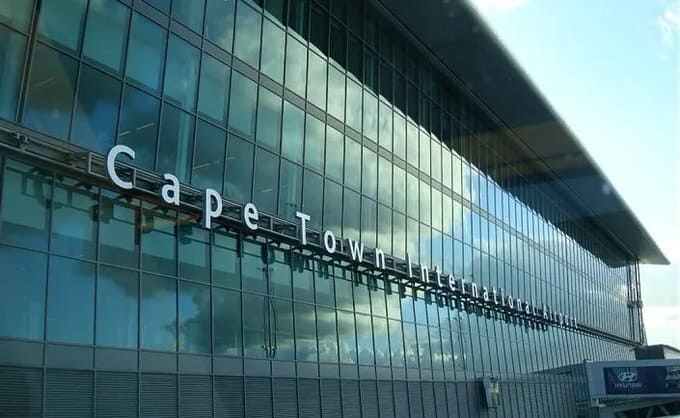NATIONAL NEWS - South Africa’s major international airports could be dangerously underprepared for a bomb threat ahead of next month’s G20 Summit.
This is according to explosives expert Jimmy Roodt, operations director and explosives manager at Gauntlet Security Solutions, who said he believed OR Tambo International, Cape Town International and King Shaka International airports are not bomb safety compliant.
Airports fail to meet international standards
Roodt said the three gateways are in direct violation of international aviation security standards.
A threat, he said, was one thing. But as it stands, if a threat was realised, an actual attack could leave facility users dangerously exposed.
“These findings are not theoretical,” he said. “They are evidence-based, supported by on-site observation and benchmarking against the UN’s International Civil Aviation Organisation (ICAO) and other global directives.”
He added that emergency drills are pointless if the process is all wrong in the first place.
“While there are visible evacuation plans, these are based on fire protocols,” he said.
This is because, according to Roodt, South Africa has no legal framework that deals with explosive-specific measures.
“Fire standards send people outside. Bomb standards often require people to stay inside. Using the same rules for both is reckless,” he said.
“The absence of a national bomb safety standard has left South Africa relying on codes that are entirely unsuited to blast mitigation.”
 OR Tambo International Airport. Photo: Hein Kaiser
OR Tambo International Airport. Photo: Hein Kaiser
Imminent risk as global attention focuses on SA
The stakes are unprecedented, he said, as the world’s attention will be on South Africa next month.
“A bomb detonation would not be an act of God,” he said.
“It would be the result of negligence by the SA Civil Aviation Authority (Sacaa), Airports Company SA (Acsa), the department of transport and the private security sector’s outdated practices.
“Everyone, including world leaders, deserve secure passage, not exposure to kill zones born of this collective failure.”
Roodt has worked in explosive ordinance and bomb threat mitigation across 13 countries for the past three decades.
He said all three of the country’s airports fail to meet the ICAO’s Annex 17 Standards and Recommended Practices.
It sets out the standards for aviation security and includes both preventative and responsive measures to protect passengers, crew and facilities from terrorism and unlawful interference.
Roodt warned that the deficiencies he observed transform airports into potential “kill zones”, posing an imminent and catastrophic risk to anyone present.
Roodt said his assessments indicate that current assembly points place passengers within 25m to 65m of potential detonation zones.
“Glass façades would shatter into high-velocity fragments, car parks could ignite secondary explosions from fuel tanks and unsecured baggage handling areas might trigger chain reactions.
“Anyone standing within 50m-100m of a detonation would either be killed instantly, or severely injured by flying debris and secondary fragmentation.”
He added that the absence of blast barriers or reinforced shelter areas leaves passengers and first responders without protection.
“People will run towards danger because the signage sends them there,” he said.
“There is no system to contain the effects of an explosion and no safe point beyond the blast radius.”
Authorities respond but gaps remain
The CAA disagrees with Roodt’s assertion.
Agency spokesperson Sisa Majola said it do not discuss security matters publicly.
“They are sensitive and have the potential to undermine national security. Any public discussion of aviation security measures compromises its integrity and effectiveness,” he said.
“The public can be assured that South Africa is a signatory state to the Chicago convention and is subjected to international audits from time to time. Our state also upholds the security standards as prescribed by ICAO. The last security audit by ICAO was conducted in 2022.”
The Sacaa oversees airports and all aspects of aviation safety in South Africa.
Majola also said that over and above this: “South African aviation security systems are regularly tested by other international agencies, such as the Transport Security Administration (TSA) in the US, to ensure compliance as they have traffic to and from South Africa.
“The country last received a visit from TSA in May 2025.”
 Cape Town International Airport. Photo: X/@alanwinde
Cape Town International Airport. Photo: X/@alanwinde
Roodt said the CAA had got it wrong. It’s not about security and detection but about keeping passengers safe when there is a threat, or an actual attack because safety standards have not been complied with.
“This is about what happens when ordinance explodes and how safe people are then,” he said.
Roodt said he first raised the alarm in August, when he sent letters to Sacaa director of civil aviation Poppy Khoza, among others, at the agency.
Copies of his correspondence were also sent to Transport Minister Barbara Creecy.
Department of transport spokesperson Collen Msibi confirmed that Roodt had been in touch.
“We have received communications from Mr Roodt. It was referred to Acsa. On some of the issues raised, we have also requested Acsa to update the department due to the operational nature of the matters raised.”
Msibi said as soon as the department received word from the airports company, he would share it with The Citizen.
‘Financial gains cannot come before passenger safety’
Roodt said the department also shared key contacts at Acsa with him, but his e-mails to these parties never received a reply.
As a result, Roodt recently turned to ICAO to file a formal complaint under its Universal Security Audit Programme.
He said he asked for a targeted audit of South Africa’s airports to address what he described as “systemic bomb safety non-compliance”.
He said it was inexcusable that OR Tambo, King Shaka and Cape Town international airports lack the resources needed to meet bomb safety standards, especially with global leaders on the way.
“Financial gains cannot come before passenger safety,” he said, adding that profitability means little if airports remain exposed to such vulnerabilities.
Roodt called for urgent intervention and the establishment of a national bomb safety standard to fix what he described as “a crisis hiding in plain sight”.
Despite several attempts to provide Acsa with an opportunity to comment, it did not meet several deadline extensions and had not responded at the time of publication.
Article: Caxton publication, The Citizen
‘We bring you the latest Garden Route, Hessequa, Karoo news’
















